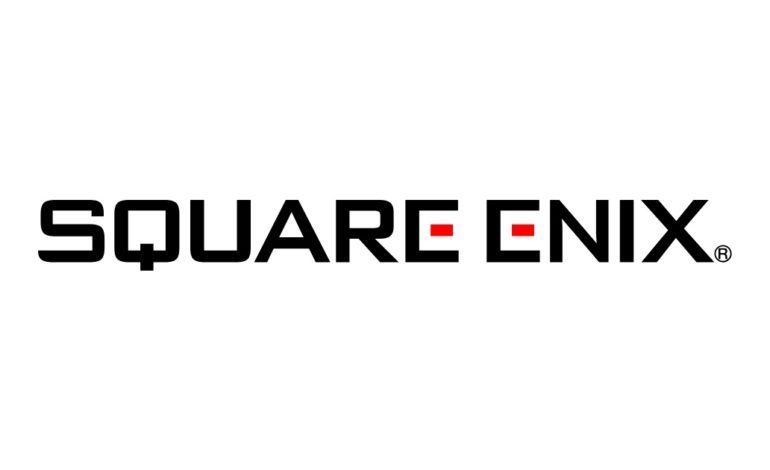

As 2021 went on, one of the bigger things that started to gain traction was the introduction of NFTs, “non-refugible tokens” and blockchain technology. According to a recent study, blockchain technology can lead to innovative gameplay, secure value for players by keeping money in the game, and rewarding players with real-world value. Some developers and publishers like EA and Ubisoft are planning to incorporate or have already started incorporating NFTs and blockchain technology into their games. To bring the new year, Square Enix President Yosuke Matsuda released a letter talking about how all these new things will impact the business environment and the video game industry. Matsuda also details how and why he wants Square Enix to get involved with the relatively new technology.
Matsuda began the New Year’s letter with “The metaverse was a hot topic in 2021, inspiring a lively global conversation first about what the metaverse is and then about what sort of business opportunities it presents. Against this backdrop, Facebook changed its name in October to Meta, serving as evidence that the concept is not a mere buzzword but here to stay. The metaverse garnered so much attention that 2021 was dubbed the “Metaverse Year” I attribute this in large part to advances in extended reality (XR) technology, the increasing prevalence of the cloud and 5G, more sophisticated blockchain technology, and other technological evolutions that have taken place in a variety of fields over the past several years. That is because these advances are giving rise to services that fall under the metaverse umbrella. The metaverse will likely see a meaningful transition to a business phase in 2022, with a wide range of services appearing on the scene. As this abstract concept begins to take concrete shape in the form of product and service offerings, I am hoping that it will bring about changes that have a more substantial impact on our business as well.”
Matsuda also talks about the rise of NFTs. “I see 2021 not only as “Metaverse: Year One,” but also as “NFTs: Year One” given that it was a year in which NFTs were met with a great deal of enthusiasm by a rapidly expanding user base. However, we do observe examples here and there of overheated trading in NFT-based digital goods with somewhat speculative overtones, regardless of the observed value of the content provided This, obviously, is not an ideal situation, but I expect to see an eventual right-sizing in digital goods deals as they become more commonplace among the general public, with the value of each available content corrected to their true estimated worth, and I look for them to become as familiar as dealings in physical goods.”
Matsuda believes that blockchain games have the potential to enable self-sustaining game growth. He believes that diversity is the key to this. Diversity in both how people engage with interactive content like games and in their motivations for doing so. “Advances in token economies will likely add further momentum to this trend of diversification,” Matsuda said. “I see the “play to earn” concept that has people so excited as a prime example of this. Yosuke Matsuda notes that while this is new and exciting, some people have their reservations. A prime example of this is what happened to S.T.A.K.L.E.R. 2’s plans regarding NFTs. The developers of the game announced their intent to introduce NFTs into the game that would let players become the first “Metahuman.” However, the devs decided to roll back and cancel their plans following backlash from the community.
Matsuda addressed this in the letter. “I realize that some people who “play to have fun” and who currently form the majority of players have voiced their reservations toward these new trends, and understandably so. However, I believe that there will be a certain number of people whose motivation is to “play to contribute,” by which I mean to help make the game more exciting. Traditional gaming has offered no explicit incentive to this latter group of people, who were motivated strictly by such inconsistent personal feelings as goodwill and volunteer spirit. This fact is not unrelated to the limitations of existing UGC (user-generated content). UGC has been brought into being solely because of individuals’ desire for self-expression and not because any explicit incentive existed to reward them for their creative efforts. I see this as one reason that there haven’t been as many major game-changing content that were user generated as one would expect.” With advances in token economies, Matsuda says that there will be explicit incentives for people to play with would result in greater consistency in their motivation to play, but also create a tangible upside to their creative efforts. “I believe that this will lead to more people devoting themselves to such efforts and to greater possibilities of games growing in exciting ways. From having fun to earning to contributing, a wide variety of motivations will inspire people to engage with games and connect with one another, “Matsuda said. “It is blockchain-based tokens that will enable this.”
Matsuda believes that by designing viable token economies into Square Enix’s games, they will enable self-sustaining game growth. “It is precisely this sort of ecosystem that lies at the heart of what I refer to as “decentralized gaming,” and I hope that this becomes a major trend in gaming going forward. If we refer to the one-way relationship where game players and game providers are linked by games that are finished products as “centralized gaming” to contrast it with decentralized gaming, then incorporating decentralized games into our portfolio in addition to centralized games will be a major strategic theme for us starting in 2022.”
Yosuke Matsuda ended his letter with “Our lifestyles have changed, and we are learning to coexist with COVID-19. Against that backdrop, I believe that the new technologies and concepts that I have discussed and the changes that they bring to our business environment will provide us with numerous opportunities to enrich people’s lives through digital entertainment, which is at the core of our business. This at the same time means that we are seeing the beginnings of further leaps forward for our business. We remain committed to creating, developing, and providing world-class content, and we will contribute to the happiness of society and its people by offering new forms of excitement.”
Play games, take surveys and take advantage of special offers to help support mxdwn. Every dollar helps keep the content you love coming every single day.

